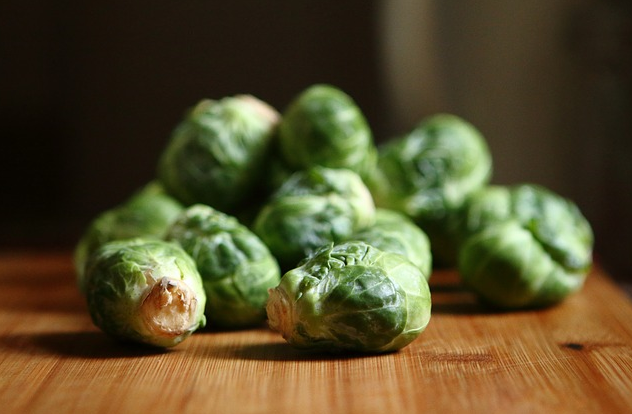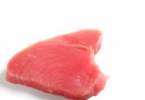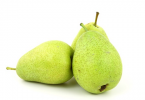Today’s question: can dogs eat Brussels sprouts? Are Brussels sprouts good or bad for dogs? Scroll down for detailed answers.
Brussels sprouts may not have the best reputations among many American eaters. Since childhood, most people have been fighting the fact that we are told to eat our Brussels sprouts and without complaint. While this veggie is good for our bodies, offers wonderful nutrition, and is affordable, many choose to avoid the veggie or at least dread the addition to their plates.
On the other hand, many people love Brussels sprouts and incorporate the veggie into many dishes. There are quite a lot of ways in which to make this veggie more pleasing, however, one must have a taste for Brussels sprouts in order to actually eat them regularly. Brussels sprouts may be seasoned and flavored in creative ways, or baked, grilled, or put into a crock pot to slow cook. However you choose to enjoy your Brussels sprouts is your preference and prerogative. For those who enjoy Brussels sprouts, many may think they should offer their dogs a share in the nutrient. Do dogs like Brussels sprouts? Do dogs need the extra vitamins the veggie offers?
When it comes to serving food to our dogs, we want the best. Many people take not only their own health into account on a daily basis in regards to their diet, but also their pet’s diet and nutritional capacity. Proper diet is one affirmation every dog owner can agree with. We want the best food for a healthy development of our canine friends. Natural food and whole food diets have become increasingly trendy for both humans and pets, why not include our dogs in the health food crazes?
The same goes for treats, right? These once in awhile delights that our marvelous creatures get to enjoy after showing a wonderful behavior. Treats are great for using as a training tool or as a reward center, but should we be offering these treats to our dogs? Could we be offering veggies as treats and rewards instead? What if the treats are Brussels sprouts? Can dogs eat Brussels sprouts? Let’s see what the experts have to say about these vegetables.
Can Dogs Eat Brussels Sprouts?
The short answer is yes, in moderation.
Considering the fact that Thanksgiving is just a few weeks away, it makes total sense to start asking yourself this question. Planning in advance to prepare for food that may be offered to your dog is a responsible aspect to pet parenting. Researching foods, reactions, possible allergies, and possible toxins in human food can help you better prepare for the questions during the holidays of “May I feed your adorable dog some of this…” Preparing in advance also helps aid in the late night panics when food has disappeared and a broken plate, scrap of bones, and a sick dog lay in the corner.
Brussels sprouts are definitely going to be there, on the table, and you are most likely going to share some food with your canine friend too. Any dog owner knows that dogs like to beg for food. We must offer dogs whole foods that have been properly washed and prepared. What better veggie to offer than Brussels sprouts? There may even be a lot left over if the children in their family have turned up their noses and deemed this veggie inedible. How can anyone resist the puppy eyes stuck on us while we enjoy our dinner? So, take the precautionary measures needed for all food prep and see if you can share your Brussels sprouts with your dog!
The experts’ concur that giving your dog Brussels sprouts is completely safe. However, they warn that if your pooch eats too much of this green leafy vegetable it may cause uncomfortable gas and GI expansion. Remember, if the human bowels can react to Brussels sprouts so can your dogs’. You may want to avoid the reaction of dog’s bowels after eating Brussels sprouts, therefore limit the amount you offer your dog and simply observe the after effects. If your dog seems to tolerate the veggie well, offer the Brussels sprouts again another time. Offer a little more than the previous special treat, and observe again. IF your dog does not have a reaction the second time, you should be safe to feeding your dog Brussels sprouts on occasion.
Always introduce food slowly and always clean the food and prepare the food well to avoid possible contamination. In the event you have an adverse reaction, the Brussels sprouts themselves do not contain any toxins or potential poisons to your dog. You may wish to simply let the stomach upset, or the reaction, run its course and then not feed the dog Brussels sprouts again. In the event you believe the stomach upset is not due to the ingestion of Brussels sprouts, or the upset lasts quite a bit longer than normal, refer to your local vet for advice and care.
Health Benefits of Brussels Sprouts
One great thing about Brussels sprouts is that they are loaded with a great amount of benefits for your dog’s health. They are part of the Cruciferae family of vegetables and contain many vitamins. Moreover, they are a powerful source of fibers and are recommended to be included in our foods and in dogs’ diets as well. The fibers help aid in digestion, immunity, and overall wellness. Your dog may not need the extra fiber in his/her diet, so be cautious as to not overfeed fiber to your dog. This may cause the reverse cause to occur.
The fact that your dog might break the wind (in our dogs or us) is just a small consequence of eating the Brussels sprouts. The veggie actually makes the bowel to move and help with the health of the colon. Most veggies from the cruciferous family are considered to be a ‘roughage’ pushing food, waste, and toxins through our intestines. The excess bacterium that builds up is then released in a gas. This process is healthy in moderation and possibly a good thing for our health. While not enjoyable, the action should not cause worry or harm and should not discourage you from feeding your pup Brussels sprouts.
Brussels sprouts also contain 2 great components called sulforaphane and indole-3-carbinol. The activity of these two components are said to be focused on fighting the free radicals known for bringing damage to the body and for causing cancer. So, consuming more Brussels sprouts means a greater amount of these elements, which translates into a smaller amount of free radicals and lowering the chances of developing cancer. Many people aiming for a natural cancer offense, and even a defense, have been opting for veggies that promote the fighting of free radicals. This process seems to work for many humans, the process may work for dogs as well. Even if the process is deemed not to cure cancer, the process certainly does not hurt the process or the overall health of the dog.
Another great aspect about this veggie is that it is loaded with antioxidant properties. These antioxidants will help reduce the inflammation, which is again, the main symptom of cancer development. They also help with better blood circulation. Boosting immunity and circulation efforts in your dog is just as important for them as it is or you! A dog with proper circulation will have a stronger heart and less blood clot potential.
Brussels sprouts also contain many other vitamins such as K and C, both of which will boost your furry friend’s immune system and make the bones stronger. Vitamins A, B1 and B6 along with other health-friendly elements such as manganese, potassium and folate will only work together and create a formula that will bring nothing, but a positive impact on the overall health of your dog.
How to Prepare Brussels Sprouts for your Dog?
Sprouts carry a risk of food borne illness. It’s always best to cook Brussels sprouts thoroughly to reduce the risk of illness. Also, raw sprouts may be harder for dogs to digest and are most likely to cause stomach problems.
Choose Brussels sprouts that are fresh, green and firm. Remove the stem and wash the sprouts. You can steam, boil or microwave sprouts. When cooking them for your dog, don’t add any salt or other spices. Plain cooked sprouts are best for dogs. Also, try not to overcook the sprouts since they will lose the beneficial nutrients.
When feeding new foods to your dog for the first time, exercise caution and observe your buddy’s behavior. One sprout would be enough to start out. If your furry pal seems to digest Brussels sprouts without issues, limit the amount to 3 sprouts at one sitting. If you have a tiny dog, one sprout would be more than enough.
Brussels Sprouts – Precautions
You might be thinking that this is a food loaded with so many healthy elements, what could go wrong if my dog eats a bit more than he is supposed to? Well, moderation is always the key. Even though Brussels sprouts are healthy foods to give your dog occasionally, your pooch should not eat them excessively.
Sprouts contain a high amount of isothiocyanate, a compound that has a powerful impact on a dog’s gastrointestinal tract. As experts say, this compound will “clear the pipes.” This means that too many sprouts will cause diarrhea and tummy problems.
Remember, dogs can eat Brussels sprouts, but in small amounts. As usual, too much of any food is never good. Make sure that you share your Thanksgiving dinner wisely with your dog.
Related articles:
References:
http://www.whfoods.com/genpage.php?tname=foodspice&dbid=10
http://www.integrativeoncology-essentials.com/2013/03/fight-cancer-chew-or-juice-brassicas/
http://www.foodsafety.gov/keep/types/fruits/sprouts.html
http://www.candogseat-this.com/can-dogs-eat-brussel-sprouts/








Leave a Comment